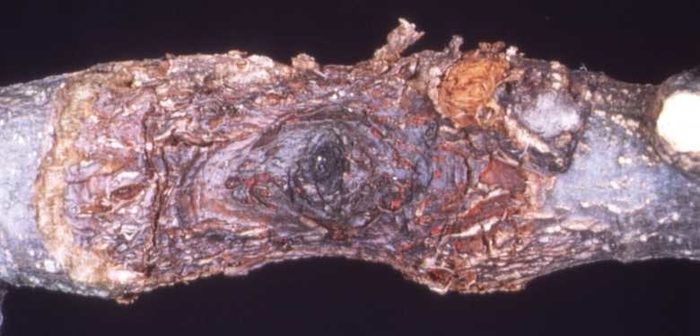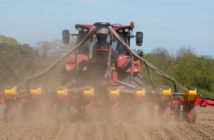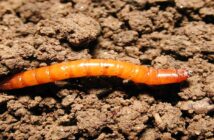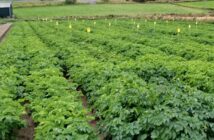A novel approach to granting derogations has been introduced for the first time via an Emergency Authorisation for Cuprokylt.
The 120-day Emergency Authorisation, for the use of Cuprokylt in the control of Nectria canker on post-harvest apple and pear trees, has been split between the two high-risk periods for the disease, at leaf fall in autumn and after bud burst in spring.
“This totally new approach to granting authorisations will offer growers the opportunity to protect their crops from one of the most damaging diseases during the key periods,” explains Certis’ regulatory affairs officer, Maria McKelvie.
“The fact that the Chemicals Regulation Division (CRD) have agreed to split this Emergency Authorisation across the two usage periods is a significant breakthrough, as it recognises the importance of the product to the industry.”
After lobbying from AHDB Horticulture, Defra, the Organic Growers Association, the Soil Association, and Certis, among others, growers now have access to a product through the periods of greatest risk.
“There is a huge amount of work going on behind the scenes to get these authorisations granted, and it really has been a team effort,” she says.
Rob Saunders, chairman of the AHDB Tree Panel board, explains that when considering granting Emergency Authorisations, CRD seek reassurance that a long-term plan for tackling a disease has been developed.
“Looking ahead to crop protection in the longer term, and finding alternative approaches to tackling diseases such as Nectria canker is vital.
“As a result, AHDB Horticulture has commissioned NIAB EMR to undertake work to advance the understanding of disease expression, how the disease interacts with resident endophytes and to investigate novel approaches to control. The project is already providing useful insights, which will help growers maintain tree health in the face of the diminishing range of products available,” says Mr Saunders.
Selchuk Kurtev, IPM manager at Certis, says that a commitment to supporting UK growers in the apple and pear sectors, has brought the industry together.
“This new approach from the CRD, demonstrates that industry stakeholders and the regulatory bodies are listening to grower’s needs, and are willing to invest in securing the future of apple and pear orchards in the UK.
“Certis is also actively looking at alternative copper-based fungicides, and have some promising candidates in the pipeline,” says Mr Kurtev.




